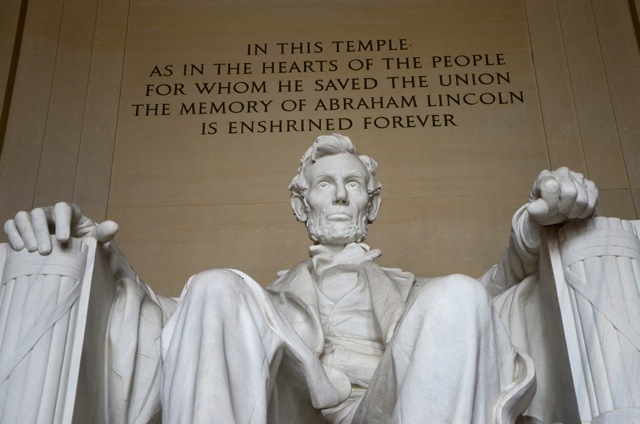The Big Picture –
By Glynn Wilson –
WASHINGTON, D.C. – “So now what?” asks the New York Times editorial board in an unsigned editorial under the headline: The High Court Brought Low: Don’t let Donald Trump and Brett Kavanaugh have the last word about American justice.
“Having first sickened the White House and then Congress, the virus of Trumpism is about to spread to the Supreme Court itself,” the Times writes.
It already has. The conclusion is, for those who can’t afford to pay:
“Most Americans are not where this Senate majority is. They do not support President Trump. They do not approve of relentless partisanship and disregard for the integrity of democratic institutions. And they have the power to call their government to account.”
Maybe, but only if the right people vote. The problem for decades has been that in election after election, the wrong people vote routinely. Of course every citizen has a right to vote. Everyone should vote. But they don’t. Republicans seem to find it easy. Their goals and world view seem simpler. Democrats want it all their individual way or the highway. They get bogged down arguing with each other. It’s complicated.
Voter turnout has been abysmally low in the United States for decades. It will probably set some records in November. But will it be enough to really change the course of the country over the long-term?
In spite of all the Facebook memes declaring that there will be a Blue Wave in November, there is also evidence that the Steve Bannon-Trump strategy of appointing a Federalist Society radical right-winger to the court fires up the Republican base and could in fact deliver a Red Wave.
[We should all still be mad at Karl Rove and CNN for creating the Red-Republian/Blue-Democrat election map. Research shows that red is for winners (note the Alabama Crimson Tide) and blue is for losers (the Auburn Tigers. Sorry Auburn fans).In a refreshingly sober analysis compared to all the hoopla back in 2016 assuring Democrats that Hillary Clinton would win, the Sunday Times also carries this piece. The author is a public opinion analyst, not the world’s greatest writer, so it is not exactly written in a “smooth” way, as a recent critic of my writing who takes pictures for the Washington Post said in a message.
Compared to much of the writing in the Times and the Post and blogs all over the land these days, I disagree. Many stories are way too long and convoluted and do not make clear points. I studied E.B. White back in the day. It may not be as full of pretty pretense and purple prose as some. But as I have practiced it for more than 35 years and taught it for 10, the point of news writing is to inform readers in a way they can understand the point. Some call it “explanatory reporting” or “interpretive writing.” I once taught a course at Loyola University New Orleans under that title. It’s also been called “literary non-fiction.”
As for the Washington Post, it carries a breathless piece about a country at rock bottom, teetering on the brink of disaster.
‘Rock bottom’: Supreme Court fight reveals a country on the brink
I was tempted to write something comparing where we are today to where the country was in 1860 when Abraham Lincoln was elected on the brink of the Civil War.
One of my good friends said in a message that if Kavanaugh is seated on the court, it will be like Germany in 1933. He could be right. I mean look at what I wrote the day Trump won the election, before any newspaper reporter or writer had the guts to say so.
Fascist Dictator Donald Trump Stuns American Establishment, Defeats Hillary Clinton for President
But then I saw a piece on “CBS Sunday Morning” by Pulitzer Prize winning historian Doris Kearns (see below).
Before I end this piece on a more upbeat note, let me interject a little original news, a viewpoint from a private conversation I had last night and this morning with a white male attorney friend of mine who knows all too well from personal experience what fraternity life was like in the early 1980s, with heavy drinking and the threat of sexual assault in the air.
When I asked him what he thought of the Kavanaugh story, here’s what he said. It rings true. How much should it matter now is another question.
“I think he was in a blackout when he did what he did and both are telling their version of the truth and that he ran with the crowd of guys like those I knew whose dates I drove home from frat parties so they would not be tempted to rape them.”
Considering the situation we find ourselves in now, I think we should give a woman the last word here today.
In a piece clearly designed to try give us all some hope after this bitter battle over Kavanaugh, she asks us to consider how divided the country was when Lincoln entered office “with the country about to rupture into a Civil War that would leave more than 600,000 dead.” She says to remember Theodore Roosevelt who was “thrust into office when conflict between the rich and the poor had grown so intense that talk of revolution filled the air.”
Then she brings up Franklin Roosevelt, who came into power “when the Great Depression had paralyzed the economy and the spirit of the country.”
Finally, she cites Lyndon Johnson, who took office “in the wake of Kennedy’s assassination, when a civil rights bill was mired in Congress and racial issues seared the country.”
Doris Kearns Goodwin on whether we are living in “the worst of times”
I changed my mind. I will end with a video I shot last year near Mobile, Alabama, when Congressman and Civil Rights hero John Lewis came down to support the campaign of Doug Jones for the U.S. Senate. It actually got way more views and went viral on Twitter, but this was easier to find.
What he said still holds true: “Vote like you’ve never voted before.”














